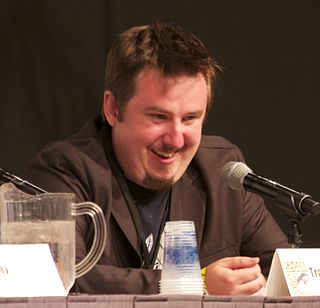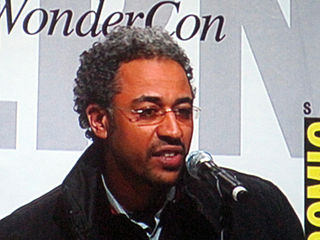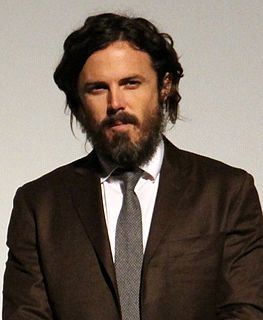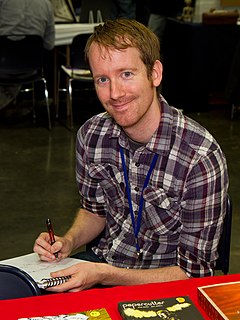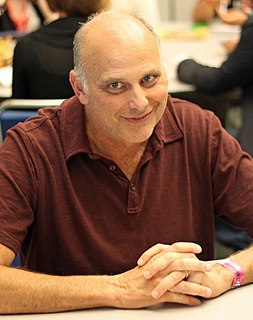A Quote by Travis Beacham
In a graphic novel, you have to allow for a certain amount of freedom on the reader's part to experience it how they choose.
Related Quotes
I felt there was a certain amount of violence in the graphic and that it could still be cheated on screen so you could still have a hard PG-13 and open up your audience. Anybody can read the graphic novel. If you're 14, you can go out and buy it, and I felt that if you're 14 you should be able to see this movie [The Loosers].
Freedom is not simply the circumstances that allow you to do whatever you want. Freedom is not only the opportunity to choose. Freedom is the strength of character to choose and to do what is right. With that in mind, our age is not an age of freedom, but an age of slavery. It is subtle, but it is real. The foundation of freedom is not power or choice. Freedom is upheld not by men and women in government, but by people who govern themselves.
I know "accessibility" is a term that's kind of thrown around wantonly today, especially with talking about visual media. But I think that the strength of comics [is how they] really allow you to transcend those last barriers between a reader absorbing the information of an experience, and a reader being able to project themselves into the [experience of the] people about whom they're reading.
I've no objection to the term 'graphic novel,' as long as what it is talking about is actually some sort of graphic work that could conceivably be described as a novel. My main objection to the term is that usually it means a collection of six issues of Spider-Man, or something that does not have the structure or any of the qualities of a novel, but is perhaps roughly the same size.
The graphic novel? I love comics and so, yes. I don't think we talked about that. We weren't influenced necessarily by graphic novels but we certainly, once the screenplay was done, we talked about the idea that you could continue, you could tell back story, you could do things in sort of a graphic novel world just because we kind of like that world.
I'm not entirely sure what a historical novel absolutely has to be, but you don't want a reader who loves a very traditional historical novel to go in with the expectation that this is going to deliver the same kind of reading experience. I think what's contemporary about my book has something to do with how condensed things are.
The book is finished by the reader. A good novel should invite the reader in and let the reader participate in the creative experience and bring their own life experiences to it, interpret with their own individual life experiences. Every reader gets something different from a book and every reader, in a sense, completes it in a different way.
A novel is not an allegory.... It is the sensual experience of another world. If you don't enter that world, hold your breath with the characters and become involved in their destiny, you won't be able to empathize, and empathy is at the heart of the novel. This is how you read a novel: you inhale the experience. So start breathing.
